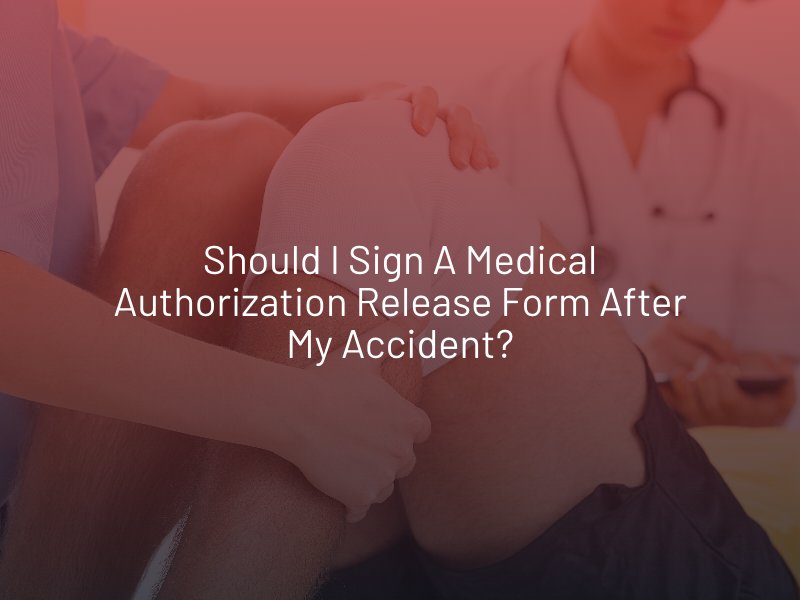Should I Sign A Medical Authorization Release Form After My Accident?
Dealing with an insurance company after a car accident can be complicated and overwhelming. One decision you will have to make is whether to sign a medical authorization release form that permits the insurer to review your medical records. While the insurance company should be provided medical records related to your accident injuries, they do not need access to your complete medical history.

The Importance of Medical Records
In most situations, only you, someone else you have approved (personal representative), or a parent or legal guardian can review or request medical records under the Health Insurance Portability and Accountability Act (HIPAA). With car accident claims, an insurance adjuster will request a medical authorization release form to access your medical records because they are looking for reasons to reduce or deny your claim. As a result, you should not sign a medical authorization release form.
How a Medical Authorization Release Can Hurt Your Claim
There are several ways signing a medical authorization release form can hurt your claim:
Prior Medical History
The insurance company will have a complete view of your personal medical history. If they can find a pre-existing injury or treatment (or a lack of) for the same body part affected by the car accident, they can argue that your injury was not caused by the collision or is not as severe as you state, even if the treatment was years ago.
Doctor’s Notes
The insurer will look for any possible inconsistent statements made to your doctor or ones that contradict the type or severity of your injuries. For example, suppose you begin suffering from headaches several days after the accident due to whiplash. However, the insurer finds you didn’t initially state headaches as a symptom at the emergency room immediately after the collision. The insurer may argue that the headaches are not related, but it is common for symptoms to arise in the days and weeks after an accident.
Frequency of Past Doctor Visits
If you frequently had doctor visits due to health problems unrelated to the accident, the insurer may label you as an “eggshell client.” This means you were in a fragile state before the accident, so your claim is less valuable. However, even if you were in poor health, you are still entitled to compensation for any exacerbation of your pre-existing conditions or injuries.
What Medical Records Does the Insurance Company Need?
You have the right to politely decline an insurance company’s request to access your medical records. To process your claim and receive compensation, though, you will have to provide the insurer with some medical records. They will need:
- Any documentation directly related to any injuries you suffered from the car accident. Including medical records for treatment, you received immediately after the collision, your diagnosis, and any ongoing treatment.
- X-rays, CT scans, MRIs, lab tests, etc.
- Records detailing the treatment a doctor recommends and medical bills for the treatment you have received.
Hiring a Las Vegas car accident attorney will protect you from the insurance companies’ requests and demands. Your lawyer will deal with the insurer directly on your behalf. That way, you will not be taken advantage of, and your attorney will only allow access to the records the insurer truly needs.